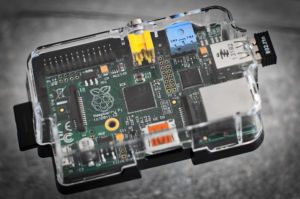
AlmaLinux, the Red Hat Enterprise Linux (RHEL)-compatible Linux distribution, has announced a milestone release — bringing with it official support, for the first time, for the Raspberry Pi 5 single-board computer.
“When I joined the AlmaLinux Community, I had a keen interest in Raspberry Pi images,” writes AlmaLinux contributor Koichiro Iwao. “There were already existing Raspberry Pi images, so I began contributing by updating them. The release of Raspberry Pi 5 in October 2023, with its significant upgrades and improvements, brought even more interest in AlmaLinux for Raspberry Pi.
AlmaLinux, built for binary compatibility with RHEL, now supports the Raspberry Pi 5. (📷: AlmaLinux)
“As requests for updated images started to appear,” Iwao continues, “I felt motivated to continue my contributions. AlmaLinux’s commitment to providing top-notch software support and user experience only fueled my enthusiasm further. This is what drives me to remain actively involved in the AlmaLinux Raspberry Pi community.”
While traditional desktop and laptop computers can all, typically, boot any Linux distribution they choose, the world of single-board computers is different. With a few exceptions, single-board computers each require an operating system image customized with drivers and kernel extensions specific to their particular hardware mix — meaning that adding support for a new board, even when it’s a successor to a board already supported, takes a bit of work.
“My first step was to learn the Raspberry Pi boot process to build AlmaLinux’s kernel package based on the Raspberry Pi kernel, which is a fork of the Linux kernel,” Iwao explains. “It took considerable time and effort to successfully build a kernel on my Arm environment, overcoming failed builds and boot issues along the way. These attempts allowed me to understand the Raspberry Pi boot process more deeply and identify what was going wrong.”
Adding the Raspberry Pi 5 was a challenge, thanks to changes in the new system-on-chip and RP1 controller. (📷: Gareth Halfacree)
“Another challenge,” Iwao continues, “was understanding the differences between [Raspberry] Pi 4 and [Raspberry] Pi 5. Gathering all this information helped me rebase the kernel to Raspberry Pi OS sources, resulting in a successfully working kernel for Raspberry Pi 5. The final step involved updating the Raspberry Pi firmware package. With everything in place, the build scripts were ready to create images with Raspberry Pi 5 support.”
Iwao’s full write-up is available on the AlmaLinux blog, while the new Raspberry Pi 5 images for AlmaLinux 9.4 and 8.10 are available to download now.







